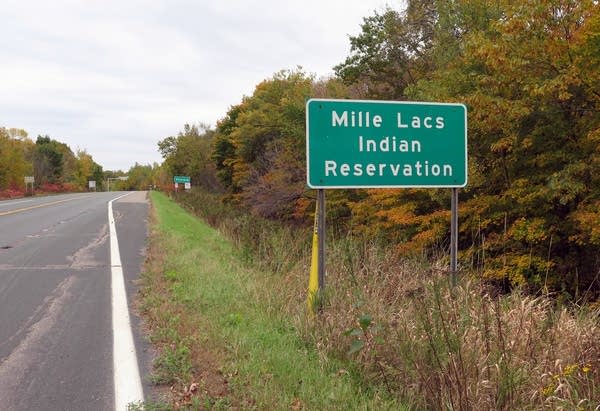Mille Lacs County, Band of Ojibwe settle dispute over policing

Go Deeper.
Create an account or log in to save stories.
Like this?
Thanks for liking this story! We have added it to a list of your favorite stories.
Mille Lacs County and the Mille Lacs Band of Ojibwe have reached an agreement on policing on the band's central Minnesota reservation, settling a two-year feud.
Both the county board of commissioners and the Mille Lacs Band Assembly have approved the cooperative agreement, which took effect Tuesday.
Under the agreement, the Mille Lacs Band's police department will share authority with the Mille Lacs County Sheriff's Office to enforce state laws in the three townships that surround the south and west ends of Lake Mille Lacs.
The dispute began when the county terminated its law enforcement agreement with the band in 2016, ending 25 years of cooperation between the band's police department and the county sheriff's office.
Turn Up Your Support
MPR News helps you turn down the noise and build shared understanding. Turn up your support for this public resource and keep trusted journalism accessible to all.
Band leaders have blamed the lack of an agreement for an increase in crime and opioid abuse, because they said tribal police didn't have the authority to investigate crimes.
An initial effort to resolve the dispute through mediation failed. Gov. Mark Dayton intervened late last year and asked both sides to try again.
The two sides met several times with retired Judge Arthur Boylan and reached a tentative agreement earlier this month.
Mille Lacs County Attorney Joe Walsh said it's very similar to the previous law enforcement agreements between the county and the band, but spells out with more clarity the roles of each agency.
Walsh said it recognizes that Mille Lacs Band tribal officers can investigate and submit cases to the county attorney's office for prosecution, an authority granted in 2016 under the Tribal Law and Order Act.
The Mille Lacs County Sheriff's Office has added officers to cover northern Mille Lacs County. Walsh said there aren't any plans to reduce staff, so there will be an increased law enforcement presence in the area.
"Anytime there's more resources available for investigation of criminal activity, I think that's a positive," Walsh said.
However, the agreement doesn't resolve the longstanding feud over the reservation boundaries at the heart of the disagreement over policing.
The band believes the reservation consists of 61,000 acres set aside in an 1855 treaty with the federal government. Mille Lacs County maintains it's limited to about 4,000 acres held in trust by the federal government.

The Mille Lacs Band filed against Mille Lacs County in federal court seeking a determination of the 1855 reservation boundary.
The Mille Lacs Band declined an interview request. In a statement, Chief Executive Melanie Benjamin said the past two years have been "tragic and difficult years on the reservation."
"The reinstatement of the law enforcement agreement is the beginning of a long journey in restoring law, order and hope in our community," she stated.



